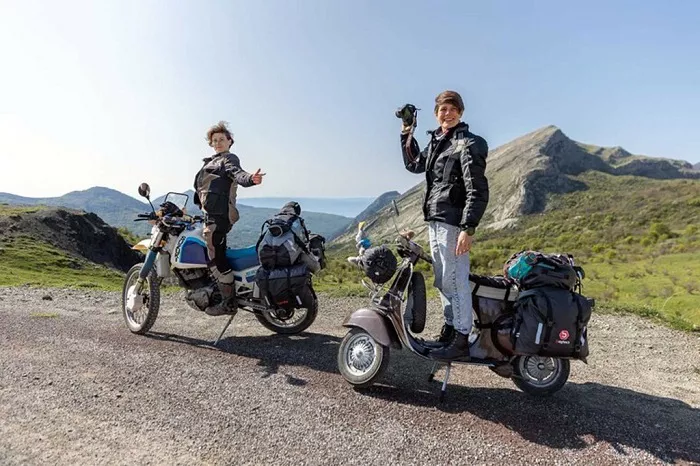Rome – Two young women are journeying across Italy on a vintage Vespa and an old motorcycle to shed light on immigration and integration efforts across the country.
Martina Vanzo, 32, and Léa Samson Jousseaume, 28, set off from the Veneto region on April 6 on a mission they’ve dubbed the Mediterranean Highway. Their route will take them through the Adriatic coast, southern Italy, and Sicily, before concluding in Marseille, France, on June 6.
Traveling on a 1974 Vespa Primavera 125 and a Suzuki Djebel, the pair is covering over 5,000 kilometers. Along the way, they are meeting with local communities and organizations dedicated to supporting migrants and refugees.
“We want to raise awareness about immigration by sharing accurate information and firsthand stories,” said Vanzo and Jousseaume.
The project is organized in partnership with SOS Mediterranee, a non-governmental organization that conducts sea rescue operations in the central Mediterranean.
Their stops have included visits to the Arci cultural association in Brindisi, the Etnos cooperative in Caltanissetta, and groups working alongside SOS Mediterranee in Bologna and Bari. On May 6, they were in Caltanissetta, where they praised Etnos as a “perfect example of widespread hosting” for immigrants, citing similarities with Arci’s integration work in Brindisi.
The women also met with notable figures in Italy’s migration efforts, including European Parliament member Mimmo Lucano, known for his migrant integration model in the Calabrian town of Riace, and Renzo Bufalino, mayor of Montedoro, another town recognized for successful integration initiatives.
Documenting their trip via Instagram (@nomad_prod), Vanzo, a photographer, and Jousseaume, a director, have shared behind-the-scenes moments of the challenges and beauty of their journey. These include motorcycle breakdowns, flat tires, and makeshift dinners cooked on a camping stove under the stars.
“We sleep in a tent and move from place to place each night,” they said. “This journey is both a physical and human exploration of how communities in the Mediterranean region respond to migration.”
The duo’s final destination, Marseille, is symbolic as a Mediterranean port city and a hub of multicultural exchange—an apt conclusion to a journey centered on the human stories behind immigration statistics.
Related topics:
- U.S. Judge Halts Deportation of Migrants to Libya, Citing Due Process Concerns
- Canada’s New Government Signals Tighter Immigration Controls
- Nationwide Protests Erupt in Germany Over Immigration and Ukraine Support


